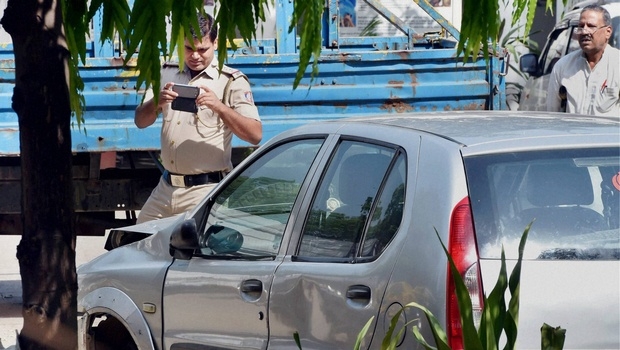New Delhi, Jun 5: Union Rural Development Minister Gopinath Munde on Tuesday died of cardiac arrest after being injured in a car accident while on his way to the airport.

Delhi Police sources said an Indica slammed into the Munde's official car, a SX4, after his driver jumped the traffic light at Aurobindo Chowk near India Gate.
His car was running a speed of 60-70 km/ph and as the car apparently jumped the traffic light, the Indica driver applied full brakes but the car skidded to some distance and slammed to one side of the SX4 where Munde was sitting.
However, Munde's driver had told police that Indica jumped the light coming from the left and hit the car.
The accident took place around 6:25 am.
Munde was sitting on back seat alone reading a newspaper and his personal secretary Nair was sitting next to the driver.
Munde was injured on his face near the nose. He asked for water from Nair and told him to go to a hospital.
He was taken to Safdarjang first, then to AIIMS trauma centre.
Police came to know about the accident when Indica driver Gurjinder called the PCR and told them about the accident with car with a read beacon. The driver, Gurjinder Singh, was later arrested. But he was released on bail by a local court.
He works at a hotel and was driving alone. It was a commercial vehicle.
A FSL team found skid marks of the Indica on the accident spot.
After Munde was rushed to AIIMS trauma centre, there was no cardiac response, said a doctor, and despite all steps, he could not be revived. The minister breathed his last at 7.20 am.
Doctors said the cause of death was internal injuries that led to a cardiac arrest. There were no external injuries. It is believed he died of cardiac arrest due to shock. But the actual cause of death will only be known after the post mortem report.





Comments
Add new comment